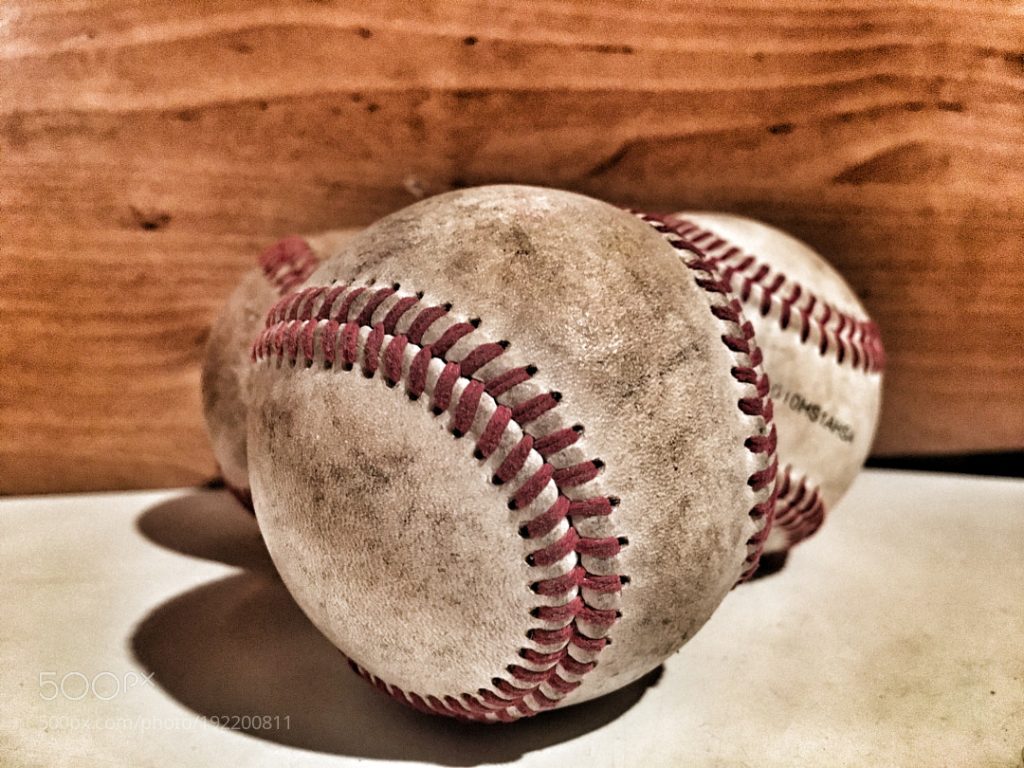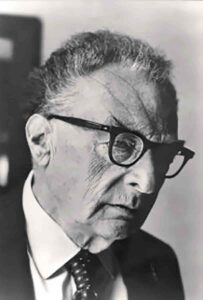Moses “Fleet” Walker was born on October 7, 1857 in Mount Pleasant, Ohio. His parents were Reverend Moses W. Walker, M.D. and Caroline Maria Simpson. Moses was the fifth oldest out of seven children. His family nicknamed him “Fleet” growing up in order to distinguish him from his father.1 Walker and the rest of his family were not considered an ordinary African American family. Due to his father being both a reverend and a physician, the Walkers were considered “free and educated blacks, with upper middle class economic advantages.”2 This would become one of the key reasons why Fleet never really witnessed racism in his childhood years.
The segregation of blacks from whites was the law in the former Confederate States. However, Walker grew up in Ohio, where segregation was practiced more informally. African American people were not allowed certain jobs and were not allowed to live in certain areas. However, Moses did not witness much of this growing up, because of his fathers’ status in society.3
Since Fleets’ father was a physician, he did not have to work growing up. This allowed him time to focus on school and on playing baseball in his free time. Fleet was a natural athlete and very intelligent. In school, he was expected to keep up his good grades and attend every day. He was introduced to baseball when he moved to Steubenville by a group of veterans from the Civil War period, who had actually helped Abner Doubleday in forming the game of baseball.4

When Fleet was ten years old, the National Association of Base Ball Players was created to form the very first baseball league. On December 11, 1867, 237 delegates met in Philadelphia to propose rules, salaries, and other considerations for their league.5 One of the major issues they had to deal with was whether they would allow multiple races into the league. Since this league was created in the North, they believed that the color line was necessary in order to have Southern States willing to join in on the league as well. Therefore, in the first set of rules for the league, their ruling read:
It is not presumed by your committee that any club who has applied are composed of persons of color or any portion of them and the recommendations of your committee in your report are based upon this view and they unanimously report against the admission of any club which may be composed of one of none colored person.6
Four years after this committee was created it was replaced by the National Association of Professional Baseball Players. They took out this rule and simply stated that it was a “gentlemen’s agreement” that blacks were not allowed in the league. As a child, Fleet was unaware that African Americans were not allowed in the League, as this became his childhood dream to turn baseball into a career.7
Growing up, Fleet played in integrated baseball teams, and he played the usual pick-up games in the neighborhood with his friends. When Fleet turned twenty in 1878, he and his family moved to Oberlin, Ohio due to a job promotion his father received. Here Moses started college at Oberlin College.8 When he started, there was no collegiate sports at Oberlin. However, in Fleet’s third year at Oberlin, it became the very first school to form a collegiate baseball program. Fleet’s first season was a success, and he earned recognition as “one of the best all-around college athletes in the land.”9 After his first season, Fleet left Oberlin to go to the University of Michigan to pursue a law degree and continue his baseball career there as a catcher. At Michigan, he and his brother both played for the team, but Fleet did exceptionally well. Fleet went on to play two years at the University of Michigan. He never ended up graduating because, at age twenty-five, Fleet was offered a professional baseball contract to play for the Toledo Baseball Club.10 At this time, in 1884, the league consisted of eight clubs in the Northwestern League. He accepted the contract and was the second player drafted into the league. Fleet made his major-league debut on May 5, 1884, and did outstanding in his first season. He led the team to win the very first league championship. With the creation of the league, they started to play teams from other parts of the country, and came up with what is now known as the World Series. Fleet and the rest of the Toledo Baseball Club were supposed to play the Chicago White Stockings for the championship. However, the manager of the White Stockings Adrian Anson refused to play if Fleet walked onto the field. This was the very first time Walker experienced racism in the Major Leagues.

Fleet was a catcher, and because he was African American, he was not allowed to catch with a glove, face mask, or chest protector. Reports said that Fleet’s hands were always blistered and bloody after games.11 This was one of many obstacles Fleet faced due to his race. Throughout his baseball career, Fleet was the target of fan abuse and from opposing players. Fans would throw food and other items, spit, and say harsh things to him while he would play. He also received threats from certain baseball clubs saying that if Fleet stepped foot in the stadium with a uniform on, men would be there ready to mob him. Due to the constant injuries from playing with no gear, Fleet never ended up playing in these cities.12
Although Fleet led the leagues, after having so many injuries, the Toledo Baseball Club released Walker in 1885. He then moved on to play for a minor league team in Cleveland. This team soon became banned because they broke the “blue law” of playing games on Sundays. Walker then moved to play in Waterbury, Connecticut in the Eastern Leagues. After playing one season, he moved again due to teammates not being cooperative with Fleet because of his race, to a team in Newark, New Jersey.13 On this team, he was signed with another African American player named George Stoney. After playing a season of sixty-nine games together, many fans and workers of the league started to make claims that blacks should be allowed to play everywhere. “They make the teams stronger and they bring in more business.”14 This was not the thinking of everyone, however, as the racism against Fleet continued. In a game against Chicago, the opposing players all walked off the field, leaving the game when they saw Fleet and Stoney warming up to play. Also, some of Fleet’s white teammates refused to take team photos if Fleet and Stoney were going to be in them. All the white pitchers on this team never listened to Fleet when he called pitches and threw whatever they wanted just to make Fleet look bad. This became a bit overwhelming, and many coaches in the league began to push to ban African Americans; and in 1885, they were all moved to an international league club in Syracuse. Fleet became the last known African American to play for the league in Syracuse. Blacks were no longer allowed in Major league clubs and had to be recruited into a minor-league team. Fleet was allowed to play for a minor-league club in Oconto, Wisconsin until his retirement in 1891.

Once retired, Fleet decided to buy a house in Syracuse to try and find work. Although he was very well educated, well known, and the son of a physician, the only work he could find was as a railroad worker. This really wasn’t how Fleet envisioned living out his life after baseball, but it was the only choice he had. In Syracuse, Fleet still experienced racism, both at work and around his neighborhood. On April 9, 1891, Fleet was having a drink after work in his neighborhood, when a white man approached him asking what he was doing in such a nice neighborhood and why he wasn’t out working somewhere. When Fleet ignored the man, he threw a rock at him and lunged at Fleet in attempt to assault him. In self-defense Fleet stabbed the man, killing him. Two months later all charges were dropped against Fleet, and he then moved back to Steubenville, Ohio.15 He then spent the remainder of his life managing an opera house with his brother before passing away on May 11, 1924 at the age of sixty-six.16
Fleet lived out the rest of his life with his family and away from a baseball field. Although Fleet is the very first African American baseball player and catcher, he is not really recognized as such because he played when the leagues were first forming in a time now called the “dead period.” This is the reason why Jackie Robinson is said to be the first African American in what is now called “modern baseball.” However, Fleet has been recognized in the Hall of Fame for his efforts in starting the league for players today. Moses “Fleet” Walker is very strong to have played as long as he did despite the racism he experienced throughout his career. He paved the way for players like Jackie Robinson and all that came after him to play in Major League Baseball.
- David W. Zang, Fleet Walker’s divided heart: The life of Baseball’s First Black Major Leaguer (Lincoln: University of Nebraska Press, 1998), 169. ↵
- Nudie E. Williams, “Footnote to Trivia: Moses Fleetwood Walker and the All-American Dream,” Journal of American Culture vol.11 (1988): 65. ↵
- Edward R. Lee, “Moses Fleetwood Walker,” Blackfax vol.9 (1999): 37. ↵
- Nudie E. Williams, “Footnote to Trivia: Moses Fleetwood Walker and the All-American Dream,” Journal of American Culture vol.11 (1988): 66. ↵
- Nudie E. Williams, “Footnote to Trivia: Moses Fleetwood Walker and the All-American Dream,” Journal of American Culture vol.11 (1988): 65-72. ↵
- Nudie E. Williams, “Footnote to Trivia: Moses Fleetwood Walker and the All-American Dream,” Journal of American Culture (2001): 65-72. ↵
- Nudie E. Williams, “Footnote to Trivia: Moses Fleetwood Walker and the All-American Dream,” Journal of American Culture vol.11 (1988): 66. ↵
- David W. Zang, Fleet Walker’s divided heart: The life of Baseball’s First Black Major Leaguer (Lincoln: University of Nebraska Press, 1998), 169. ↵
- Nudie E. Williams, “Footnote to Trivia: Moses Fleetwood Walker and the All-American Dream,” Journal of American Culture vol.11 (1988): 67. ↵
- Edward R. Lee, “Moses Fleetwood Walker,” Blackfax vol.9 (1999): 37. ↵
- Nudie E. Williams, “Footnote to Trivia: Moses Fleetwood Walker and the All-American Dream,” Journal of American Culture vol.11 (1988): 67. ↵
- Nudie E. Williams, “Footnote to Trivia: Moses Fleetwood Walker and the All-American Dream,” Journal of American Culture vol.11 (1988): 67. ↵
- David W. Zang, Fleet Walker’s divided heart: The life of Baseball’s First Black Major Leaguer (Lincoln: University of Nebraska Press, 1998), 169. ↵
- Nudie E. Williams, “Footnote to Trivia: Moses Fleetwood Walker and the All-American Dream,” Journal of American Culture vol.11 (1988): 68. ↵
- Edward R. Lee, “Moses Fleetwood Walker,” Blackfax vol.9 (1999): 37. ↵
- David W. Zang, Fleet Walker’s divided heart: The life of Baseball’s First Black Major Leaguer (Lincoln: University of Nebraska Press, 1998), 169. ↵



107 comments
Micaela Cruz
I never found baseball to be the most interesting game but I do like to watch it every now and then. I enjoyed reading this article because I had never knew there was another individual before Jackie Robinson that officially paved the way for future African American baseball players. Moses “Fleet” Walker is an admirable being, not only for being so gifted in a sport that he would have such an important impact but also because of how even though he faced adversity, he didn’t always let that get the best of him.
Harashang Gajjar
White was only a brief stand-in, never a regular player, and he was also the son of a white father and a biracial mother. It should be remembered that at the time, a person was considered black if only one of his progenitors was African American, even three or four generations back.News articles from the time indicate that contemporary reporters were unaware of White’s racial background and considered him to be white. In other words, he passed That being the case, there is no way White needed the courage of either Fleet Walker in 1884 or Jackie Robinson in 1947
Cooper Dubrule
It always interests me to see how baseball progressed through different eras of history, especially the civil rights movement. A child with the same dreams as another could be put out of reach just due to the color of one’s skin. In Fleet’s case he persevered past the boundaries and made his own seemingly out of reach dream come true. Though Fleet isn’t recognized as the very first African American baseball player, his story still serves to show that hard work and dedication can help overcome all barriers.
Nathan Hartley
Like most people, I had no idea who Fleet Walker was before reading this article. I think it is truly sad that after becoming a professional baseball player, he still faced racism when he left the league. I also think it’s impressive that he was able to make it that far even when facing so much racism. I really enjoyed the article and I hope more people recognize what he did.
Adrian Cook
Fleet is a hero to baseball today as he’s just one of the many influential African Americans who fought for equal opportunity. He received a lot of backlash and was forced to play in dangerous conditions. Imagine having to catch a baseball with your hands over and over again without a chest or face protector. It’s very dangerous as some of those balls can come and hit you in your face and knock a couple of teeth out. I’m glad Fleet didn’t give up on his dream of playing no matter how much I’m sure he wanted to give up.
Donte Joseph
Personally, I had no clue who Fleet Walker was, but I feel that this article successfully gave me a better understanding of who he is and what he faced during his times. I find it amazing that he was able to play around the time that professional baseball had just started. To have the ability to play at a high level while having a chip on your shoulder is dedication and I am glad that he got the recognition he deserved.
Daniel Linstead
I have honestly never heard of Moses “fleet” Walker, and I am sure there are many more people that are in the same boat as I am. It is interesting to see how people think that Jackie Robinson was the first African American, just shows how much people know about Moses. It is sad, but I admire his determination to reach his dream and goal.
Brianna Ford
I love reading articles like these because it shows how much times have changed in a positive light. Fleet was one of the few African Americans that didn’t have to work and was able to go to school, which is wonderful. I didn’t know that oberlin college was the first school to have a collegiate baseball program. It is sad however, that the some of Fleet’s teammates would not want to take a picture, because him and another African American player were in it. What caught me by surprise is how Fleet did not get the proper recognition, since it was during the dead period. Well Fleet has my major respect now.
Andrew Dominguez
Before this article I’ve never heard of Fleet, and didn’t realize he had such an affect on baseball. What i thought was shocking is he wasn’t allowed to wear any protective gear because of his race. This wasn’t fair yet he was still one the highest rated athletes in the nation without the help of gear. It is very motivational to see fleet not be held down because of racism and achieve his dream.
Maria Esquivel
I don’t know much about baseball besides the many stories I have heard of Babe Ruth and the impact he had on the sport, but learning about Moses was really interesting. I was captivated throughout the whole article and really appreciated the details of Fleet’s life and learning about the hardships he had to endure because the color of his skin was not white. I am glad that after everything he went through, he was recognized in the Hall of Fame. I do agree that he deserves a lot more recognition for the incredible things he achieved so it’s great that you brought attention to his accomplishments. Awesome article!